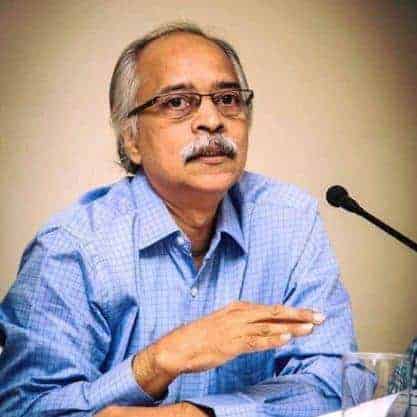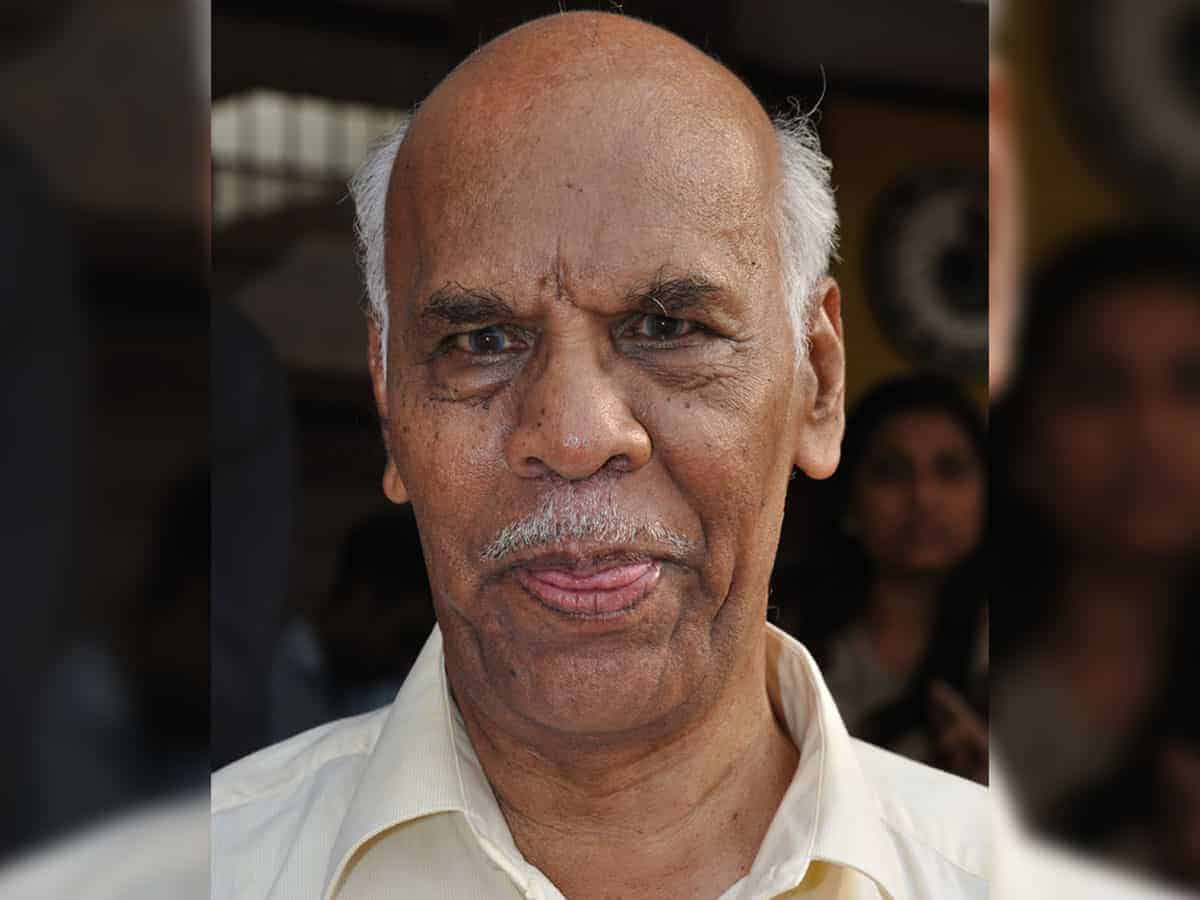
In the summer of 2020 as the COVID-19 triggered Pandemic was spreading fast, Dr Yusuf K Hamied, Chairman of CIPLA called his longtime friend and Founder of Hyderabad based AVRA Labs, Dr A V Rama Rao.
The conversation was about rapidly developing an indigenous version of Favipiravir, one of the drugs that was showing promise to check the novel coronavirus and provide relief to patients in India.
Dr Rao, with over half a century of experience in drug research as well as friendship with Dr Hamied took up the task. In just over a month thereafter, AVRA Labs did its portion of the job and CIPLA had the drug in the market.
The Indian Institute of Chemical Technology (IICT), Hyderabad too jointly worked with CIPLA to bring out the Favipiravir version.
For the two leaders in the Indian Pharma sector, both Padma Bhushans, it was a sort of short replay of their efforts in finding low cost, indigenous, anti retrovirals (ARVs) to control the epidemic of HIV/AIDS in the 1990’s.
After CIPLA led the way by producing affordable ARVs, a host of Indian majors like Aurobindo, Cadilla, Hetero, Lupin, Sun Pharma etc., produced a range of drugs that helped poor nations in Africa, Asia and India to manage the epidemic since 2000.
The best part is their zeal, energy and commitment to find solutions for both national interest and technology challenges. Both are in their eighties. The 1936 born Hamied, a scientist-businessman leads one of India’s top and respected Pharma major, CIPLA, founded in 1935 by his father, Yusuf Khwaja Hamied.
Dr Alla Venkata Rama Rao, who will be 86 on April 2, is the Founder Managing Director of AVRA Labs, which is a pioneer and leading name in outsourced R&D work for the global drug giants, as well as Indian.
A full 25 years/quarter century after retirement from the IICT under the Council of Scientific Industrial Research (CSIR), Hyderabad his zeal for research and contributing to industrial growth and IP continues, though a bit slowed down with age.
The IICT Transformation
Sometime during 1984-85, the UK Science Journal ‘Nature’ did a special feature on Indian Science & Technology. Referring to the Indian Institute of Chemical Technology (IICT), then the Regional Research Laboratory (RRL), Hyderabad, it observed that the ‘Institute was a good example of how easy it was to open a Scientific Laboratory in India, but how difficult to Close.’
A hard hitting observation by any standards for the RRL, which was started around 1944. The Lab got strengthened with Dr Hussain Zaheer as the first, full fledged Director after Independence. He later became the Director-General of the parent, Council for Scientific and Industrial Research (CSIR).
The RRLs mandate was to aid in the growth of the region by developing technologies and transferring them to catalyse industrial growth. Similar Labs were started in Jammu, Jorhat, Trivandrum and Bhopal too.
However, in 1994-95, the same Nature magazine revisited Indian Science & Technology. It’s review this time was that the IICT was among the most productive, performing Lab in the country.
The man and the leadership credited with bringing about this dramatic change/turnaround was Dr A V Rama Rao. A Chemist of repute, he was posted as Director of the RRL, Hyderabad in very testing times. He rose to the challenges and made a mark during his decade long tenure between 1985 and 1995.
I met Dr Rao, the first time in 1985 to do a report on a drug that the RRL had developed, transferred technology to Unichem, but it had failed in the market. He was forthright, answered questions and looked determined.
Within months, his no nonsense attitude and tough measures to change the work culture and research focus got him into tough situations. He sorted out the troubles with Unions, sacked some employees and faced the wrath. But in three years, the Lab got rechristened as the IICT and emerged among the top Institutes doing Chemical research and technology transfers.
Turns entrepreneur at 60
Having put the IICT among the top Labs within the CSIR and brought industrial attention globally, Dr Rama Rao, did not rest on the laurels. Instead, he took to entrepreneurship and started AVRA Labs immediately in 1995. The focus was on tapping the opportunities in the growing, global outsourced R&D work. Starting from kilo grams scale in the small facility in Hyderabad, AVRA Labs today has manufacturing units in Hyderabad and Visakhapatnam for APIs & drug intermediates too.
The impetus to setting up AVRA Labs came from G D Searle Labs and CytoMed, both the companies gave close to a total of $250,000 in 1995-96 to start off on contract projects. “I too had the determination to do something on my own,” recalls Dr Rao.
The key to the success behind Dr Rama Rao are twofold. He did outstanding research work at the NCL & IICT. He obtained 30 patents, produced over 100 PhDs and transferred over 50 technologies to industry.
Simultaneously, his engagement with global industry helped him in gaining expertise in not only technology and formulation but dealing with the doctors, clinical trials, regulators and business practises.
That’s why Avra Laboratories has the Vinca rosea petals (the Periwinkle flower) as its logo. The entire process of Vinblastine development was achieved by Dr Rao in 1980.
Run as a corporate business venture, Avra Laboratories provides services from process technologies and synthesis of new chemical entities for the world’s leading drug companies like GD Searle, Pfizer and Bristol-Myers Squibb, India’s Cipla, Dr Reddy’s, Lupin to the latest COVID19 drugs.
His son, Dr Chandra Rama Rao, a doctorate from Cambridge is the Director as well as his second son, R Ramakrishna, formerly of Dr Reddy’s as a Director too, to grow the company.
The early years
Starting from humble beginnings, Dr Rao was one of the 9 siblings of a government employee from Guntur in Andhra Pradesh. He was an average student, graduating from the AC College, but Chemistry excited him.
He managed to reach UDCT, Mumbai, did MSc in Chemistry. Getting to know of the great Chemistry Professor, K Venkatraman, he worked his way to the National Chemical Laboratory (NCL), Pune, become his PhD student and completed it in a record time of three and half years.
In 1965, he became Scientist B at the NCL. For the next decade, his work on chemistry of natural products led to the isolation of 100 new compounds from plants and insects, which also translated into 75 research publications.
However, realising the need for further study, Dr Rao landed up at Harvard University with a two year stint at one of the best organic labs. In 1975, he worked with EJ Corey (a Nobel Laureate). “We worked on the anti-cancer medication through vinblastine and vincristine,” he said
Somasekhar Mulugu, former Associate Editor & Chief of Bureau of The Hindu BusinessLine, is a well-known political, business and science writer and analyst based in Hyderabad.

